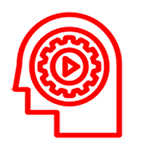How Can I Apply Human Psychology Concepts in Everyday Life?
Introduction
How Can I Apply Human Psychology Concepts in Everyday Life?
Human psychology provides profound insights into how people think, feel, and behave. By understanding and applying these concepts, we can improve our personal lives, relationships, and even professional success.
Let’s dive into practical ways to integrate human psychology concepts into daily routines, without overwhelming yourself with complex theories.
Understanding Human Psychology
To effectively apply human psychology concepts in everyday life, it’s crucial to grasp some foundational principles:
- Behavior is Driven by Needs: Abraham Maslow’s Hierarchy of Needs explains that people are motivated by different levels of needs, from basic physiological survival to self-actualization.
- Cognitive Biases Influence Decisions: Our brains use shortcuts, known as cognitive biases, which affect how we interpret and react to the world.
- Emotions Play a Key Role: Emotions are not just feelings; they guide actions, shape memories, and influence relationships.
Practical Applications of Human Psychology in Daily Life
1. Enhancing Communication
Understanding psychological concepts like active listening and nonverbal cues can make your conversations more meaningful. Here’s how:
- Active Listening: Focus entirely on the speaker, summarize what they say, and respond thoughtfully.
- Body Language: Maintain eye contact, nod occasionally, and avoid crossing your arms to appear open and engaged.
By applying these techniques, you build trust and reduce misunderstandings.
2. Building Better Relationships
Psychology emphasizes the importance of empathy and social connections. To strengthen relationships:
- Practice Empathy: Try to see situations from others’ perspectives. This can help resolve conflicts and deepen bonds.
- Use Positive Reinforcement: Compliment or thank someone when they’ve done something well. It reinforces desired behavior and strengthens your connection.
3. Improving Decision-Making
Our decisions are often influenced by cognitive biases, but being aware of them can help:
- Avoid Confirmation Bias: Challenge your assumptions by seeking evidence that opposes your beliefs.
- Use the Pareto Principle: Focus on the 20% of tasks or decisions that yield 80% of results.
4. Boosting Personal Productivity
Psychological principles like goal-setting and time management can transform your efficiency:
- Set SMART Goals: Specific, Measurable, Achievable, Relevant, and Time-bound goals keep you focused.
- Use Positive Habits: Apply the habit-loop concept (cue, routine, reward) to build lasting habits like exercising or meditating.
5. Managing Stress and Emotions
Managing Stress and Emotions
Stress and emotions significantly impact our quality of life. To handle them effectively:
- Practice Mindfulness: Techniques like deep breathing or guided meditation can help you stay present and reduce stress.
- Reframe Negative Thoughts: Instead of thinking “I can’t do this,” try “This is an opportunity to learn.”
6. Understanding Motivation
Motivation theories, like self-determination theory, highlight the importance of autonomy, competence, and relatedness. To stay motivated:
- Find Your Why: Connect tasks to a larger purpose or personal value.
- Reward Yourself: Celebrate small milestones to maintain enthusiasm.
Applying Psychology in Professional Life
1. Leadership and Teamwork
Effective leaders use psychological concepts to inspire and manage teams:
- Use Emotional Intelligence: Recognize and manage your emotions while understanding those of others.
- Encourage Collaboration: Foster an environment where team members feel valued and heard.
2. Negotiation and Persuasion
Principles of persuasion, such as reciprocity and social proof, can improve your negotiation skills:
- Reciprocity: Offer value before asking for something in return.
- Social Proof: Highlight examples of others who’ve benefited from your proposal.
Psychology Concepts for Personal Growth
Psychology also offers tools for self-improvement:
- Self-Reflection: Journaling or meditating helps you understand your thoughts and emotions.
- Growth Mindset: Believing in your ability to develop skills through effort encourages resilience.
Conclusion
Applying human psychology concepts in everyday life can bring profound changes to your communication, relationships, productivity, and personal growth.
By understanding basic psychological principles and implementing them in small, consistent ways, you can create a more fulfilling and balanced life.
So, how can I apply human psychology concepts in everyday life? Start with small steps—listen actively, practice empathy, and set achievable goals. Over time, these practices can become second nature, enriching every aspect of your life.


